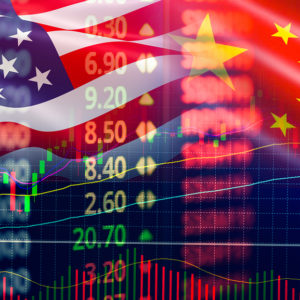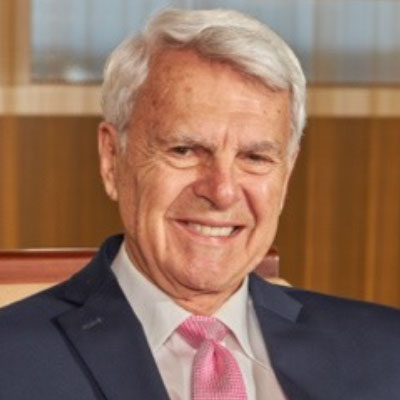‘Friend-shoring’ is a term used by Treasury Secretary Yellen to describe U.S. trade policy. ‘Friend-shoring’ is designed to shift supply chains away from Russia, China, and their allies toward countries supporting U.S. policies. ‘Friend-shoring’ is simply another term for mercantilism. For centuries, countries have pursued mercantilist policies attempting to advance their economic interests at the expense of other countries.
The Trump and Biden administrations have pursued mercantilist policies to benefit the U.S. and its allies. Those policies include high tariffs, industrial policies promoting U.S. industries, and restrictions on trade and investment flows from high-technology industries. Industrial policies promote specific industries, such as semiconductors. The U.S. imposes tight controls on exports of semiconductor technology to China. The goal is to shift supply chains away from China toward the U.S. and its allies.
The U.S. also pursues mercantilist policies through bilateral and regional trade agreements. The target of these trade agreements is Russia, China, and their allies. The Indo-Pacific Economic Framework for Prosperity negotiates trade and supply chain agreements to expand trade and investment within this block. The U.S. has proposed a ‘Chip 4’ alliance with South Korea, Japan, and Taiwan. That alliance would promote production and exports in the semiconductor industry, shifting supply chains by imposing tight controls on exports of semiconductor technology to China.
China has responded with its own countersanctions, boosting tariffs and trade restrictions on the U.S. and its allies. China pursues industrial policies to divert supply chains toward its own industries, imposing tight controls on exports from high-technology industries such as photovoltaic silicon wafer manufacturers. China also pursues mercantilist policies through bilateral and regional trade agreements. The Regional Comprehensive Partnership promotes economic cooperation between China and other countries in the region. The Belt and Road initiative promotes Chinese investments throughout the world, promoting China’s economic and political interests.
Mercantilist policies are distorting international trade and investment today, just as they did during the Great Depression. In the 1930s, the U.S. enacted the Smoot-Hawley Trade Act, increasing tariffs to the highest levels in a century. Other countries responded with their own protectionist trade policies. When the U.S. and other countries abandoned the gold standard, international trade and investment collapsed, launching a decade of economic stagnation.
In the post-World War Two period, the U.S. provided leadership in restoring free trade and investment. The U.S. promoted those policies as a leader in international organizations such as the World Trade Organization (WTO). Rapid international trade and investment growth launched an era of economic growth benefitting every nation.
Economic growth and prosperity in the post-World War Two years proved to be fertile ground for the expansion of capitalism and democracy. The end of the Cold War created new opportunities for Russia, China, and their allies to benefit from this rapid economic growth. The era culminated in China’s membership in the WTO.
Today the WTO is moribund. As the U.S. and other countries pursue mercantilist policies, the world is fragmenting into competing trading blocs pursuing trade wars and currency competition. Mercantilist policies are diminishing international trade and investment flows, just as they did during the Great Depression. This proves to be fertile ground for populist leaders of all stripes.
The WTO should be replaced by a Trade and Financial Disarmament Agreement. This organization would be open to all countries willing to reduce restrictions on trade and investment flows through multilateral negotiation. Membership in the organization would be voluntary and open to any country regardless of its alignments on other issues. Coercion, such as such as increased restrictions on trade and investment flows for countries outside of the agreement, would be precluded. That would include ‘friend-shoring’ and other policies designed to shift supply chains. In short, the Trade and Financial Disarmament Agreement should do no harm.
With a Trade and Financial Disarmament Agreement in place, free trade and investment could again be the centerpiece of U.S. foreign policy. With U.S. leadership, these policies could expand international trade and investment, creating opportunities for all countries to improve the income and wealth of their citizens. As David Ricardo argued two centuries ago, trade based on comparative advantage is a win-win strategy for all participating countries.
A Trade and Financial Disarmament Agreement would be independent from other multilateral agreements, such as Nuclear Disarmament Agreements. But it is not unrealistic to expect some complementarities between a Trade and Financial Disarmament Agreement and a Nuclear Disarmament Agreement.
As Milton Friedman argued, we have underestimated the power of authoritarian leaders, such as Russia’s Putin and China’s Xi, to impose repressive policies on their people. But that should not prevent the U.S. from promoting policies of free trade and investment. The U.S. should not resort to the ‘beggar thy neighbor’ policies pursued during the Great Depression. Mercantilist policies, even under the guise of ‘friend-shoring,’ lead to trade wars and currency competition. We do not need to repeat the mistakes of the 1930s.



